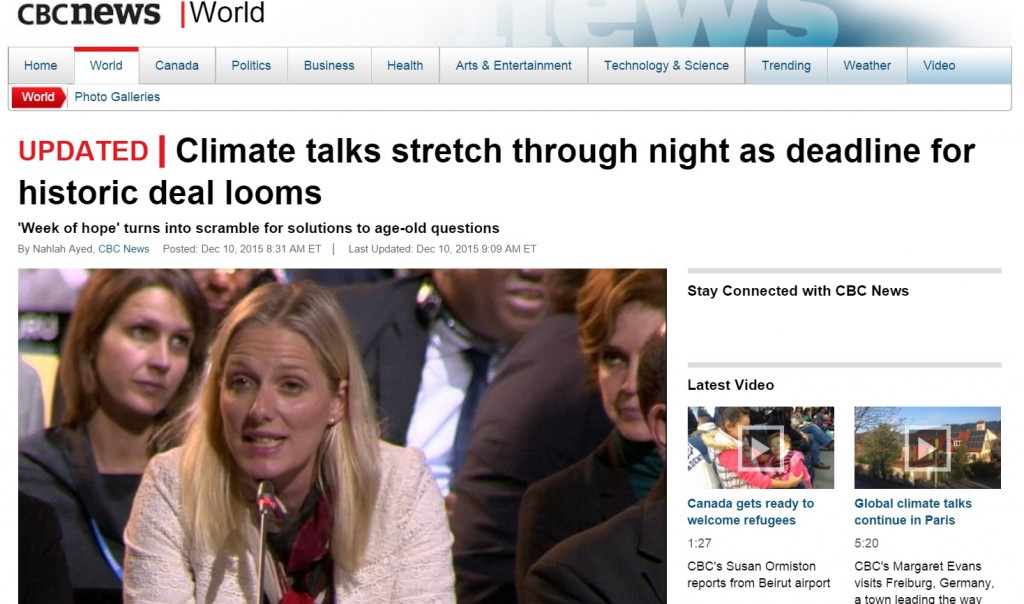
Three publications’ coverage relating to COP212 were examined from yesterday: CBC, The Toronto Star and The Globe and Mail.
CBC
On the main page of Canada’s national public broadcaster’s website, several climate stories featured prominently. One article wrote hopefully of an impending climate deal as the conference draws to a close. Some of the apparent 10-15 sticking points on such a deal are:
- Whether a fund should be established to help compensate low-lying countries for loss and damage related to climate change.
- What temperature should be included as the maximum warming the world should reach: 1.5 C or 2 C or somewhere in between.
- How to review and improve national goals for reducing emissions in the future.
An analytic piece on the site writes of the “heroes and villains of the summit.”
Unsurprisingly, Saudi Arabia was as one of the countries seen as obstructing a broad climate agreement. The article states Saudi have actively pushed against any mention in the deal of a more ambitious 1.5 Celsius limit to the rise in global average temperatures. There are still 10 countries in the world, including North Korea, Syria and Venuezuela who have declared no emissions reduction target.

The Toronto Star:
The online edition of The Star featured four stories relating to climate yesterday.
In one story Canadian comedian Scott Vrooman was shown in a video Q & A about how to make a climate pact that matters. Vrooman makes some great points, such as how signing onto Trans Pacific Partnership (TPP) agreement could undermine commitments made to reducing carbon limits, as it allows corporations to sue governments if new environmentally laws cost them money. He also criticises the revolving door hiring policies of Canadian governments, where former oil executives are appointment to high level positions.
Another story summarised the climate negotiations to date. It included that:
Canada and New Zealand had been criticised by environmental groups for backing a U.S. request to have language in the agreement that protected rich countries from having to compensate those that can’t adapt, such as island nations that end up completely submerged under water from rising sea levels.
The Globe and Mail
9 stories were in Globe and Mail’s online edition yesterday.
The G & M also wrote about island nations who may seek compensation from richer nations, should they be submerged due to man-made global warming.
Another article from the conference wrote about how rich nations were being upstaged by small developing countries. Norway was given a “fossil of the day” award by environmental groups for its alleged blocking manoeuvres in drafting a global agreement to send carbon dioxide emissions plummeting. The article quotes Leehi Yona, a senior fellow at New Hampshire’s Dartmouth College who is studying renewable energy.
The standouts in the climate fights from different continents were Morocco in Africa, Portugal in Europe, and in South America, the star is little Uruguay.
“These countries are definitely a sign that renewable energy is well on its way,” he said.